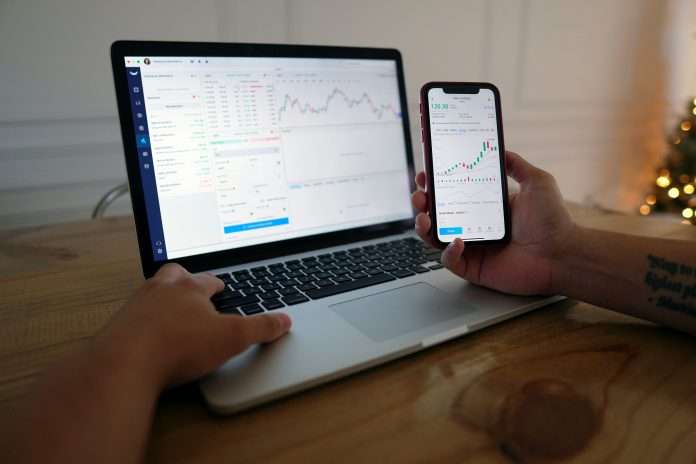The global financial landscape is witnessing a surge in interest in Sukuk, a Sharia-compliant financial instrument gaining traction beyond Islamic communities.
Velexa, a fully customisable API-based investing platform, has delved into Sukuks and the future of ethical investing.
Offering unique advantages for investors and issuers alike, Sukuk presents exciting possibilities for diversification, ethical investing, and economic development. However, challenges related to complexity and market depth require attention to unlock Sukuk’s full potential.
A Sharia-Compliant Investment Vehicle Sukuk provides a gateway to financial markets for Islamic investors seeking instruments that align with their religious beliefs. This inclusivity not only broadens the investor base but also increases capital flow into markets, potentially reducing the cost of capital for issuers. The Sharia compliance of Sukuk ensures they meet certain ethical standards, attracting not only Islamic investors but also those interested in ethical or socially responsible investing (SRI). This alignment with ethical investment principles can enhance the global appeal of Sukuk as an investment vehicle.
Diversification of Investment Portfolios Sukuk structures are underpinned by a diverse range of assets, including real estate, infrastructure projects, and various business ventures. This allows investors to diversify their portfolios across different asset classes, sectors, and geographies, potentially reducing risk. Unlike conventional financial instruments, Sukuk’s performance is often linked to returns from real assets or business profitability rather than fluctuating interest rates. This lower correlation with traditional assets makes Sukuk a valuable tool for portfolio diversification, helping to smooth out returns over time.
Support for Economic Development Sukuk is particularly well-suited for funding large-scale infrastructure and development projects that align with Islamic principles. This is especially important for emerging markets and Islamic countries, where such funding supports economic development and improves public welfare. Since Sukuk must be backed by tangible assets or projects, they often finance ventures in the real economy, such as renewable energy projects, sustainable agriculture, and community-benefiting infrastructure. This focus on real economic activity promotes sustainable development goals (SDGs) and responsible investment practices.
Stimulating Financial Innovation The growth of the Sukuk market drives financial innovation, particularly in developing Islamic financial instruments that meet the diverse needs of modern economies while adhering to Sharia principles. This innovation can lead to more efficient financial markets and stimulate economic growth by unlocking new forms of investment.
Broadening Impact The unique characteristics of Sukuk, including their ethical foundations, asset-backed structures, and potential for diversification, help make financial markets more inclusive and foster an environment conducive to sustainable economic development. As the Sukuk market evolves, it could play a crucial role in channeling investments into sectors and regions vital for global economic stability and growth, particularly in areas underserved by conventional financial systems. As awareness and understanding of Islamic finance grow, Sukuk could increasingly be seen as a viable and attractive option for a broader range of investors, further integrating Islamic finance into the global financial system.
Challenges
While the Sukuk market is growing, it faces several challenges that can impact its development and the ease with which investors and issuers engage with it. Understanding these challenges is crucial for participants in the Islamic finance market and regulators.
Complexity and Cost of Structuring Sukuk Ensuring that Sukuk structures comply with Sharia law adds layers of complexity to their issuance. This process involves securing approval from Sharia scholars, who assess the structure’s adherence to Islamic principles. The involvement of these scholars and the need to design instruments that reflect the real economic activity and asset ownership required by Sharia can make the structuring process more time-consuming and costly than conventional bonds. The necessity for Sukuk to be backed by tangible assets means issuers must identify and manage these assets, adding another layer of complexity. This requirement can limit the flexibility in the types of financial products offered and increase the logistical and legal challenges involved in structuring and managing Sukuk.
Varied Interpretations of Sharia Principles Islamic finance is guided by principles interpreted by scholars, leading to differences in the application of these principles across jurisdictions. This variability can affect the uniformity of Sukuk structures, making it challenging for investors to compare different Sukuk or for issuers to standardize offerings across markets. The lack of standardized global regulations for Islamic finance compounds the issue, as each country may have its own set of rules governing Sukuk issuance and trading. This fragmentation can deter international investors and issuers, limiting the market’s growth and the cross-border flow of Islamic finance.
Liquidity in the Secondary Market Compared to the well-established global market for conventional bonds, the Sukuk market is relatively young and still developing. This has historically resulted in lower liquidity in the secondary market, with fewer buyers and sellers. This liquidity issue can lead to higher transaction costs and price volatility, making it less attractive for some investors. The diversity of Sukuk structures, coupled with the relatively small number of issuances in some markets, can make it difficult to establish benchmarks for pricing and risk assessment. This lack of benchmarking can further exacerbate liquidity challenges, as investors may find it harder to assess the value and risk of Sukuk investments.
Addressing the Challenges Several measures could help mitigate these challenges:
- Developing standardized guidelines for Sukuk issuance and trading, possibly through international Islamic financial institutions, could harmonize practices across jurisdictions and reduce complexity.
- Increasing awareness and understanding of Sukuk and Islamic finance among investors and financial professionals could expand the market, potentially leading to improved liquidity.
- Leveraging financial technology (FinTech) to facilitate Sukuk issuance, trading, and management could reduce costs and complexity. Blockchain technology, for example, could offer a transparent and efficient platform for managing the ownership and trading of Sukuk.
While challenges remain, the potential for Sukuk to contribute to the global financial landscape is significant. Efforts to address these challenges could not only facilitate the growth of the Islamic finance market but also enhance its integration into the broader global financial system, Velexa said.
Read the full story here.
Keep up with all the latest FinTech news here
Copyright © 2024 FinTech Global











